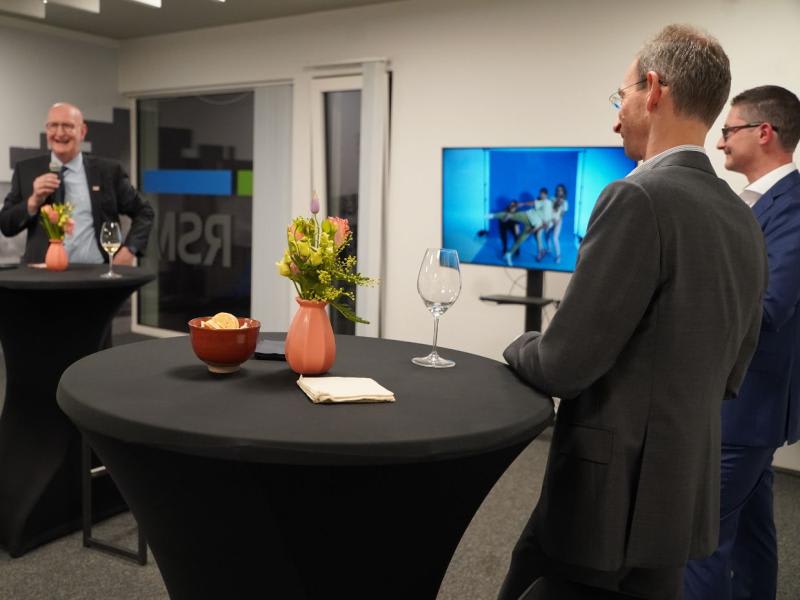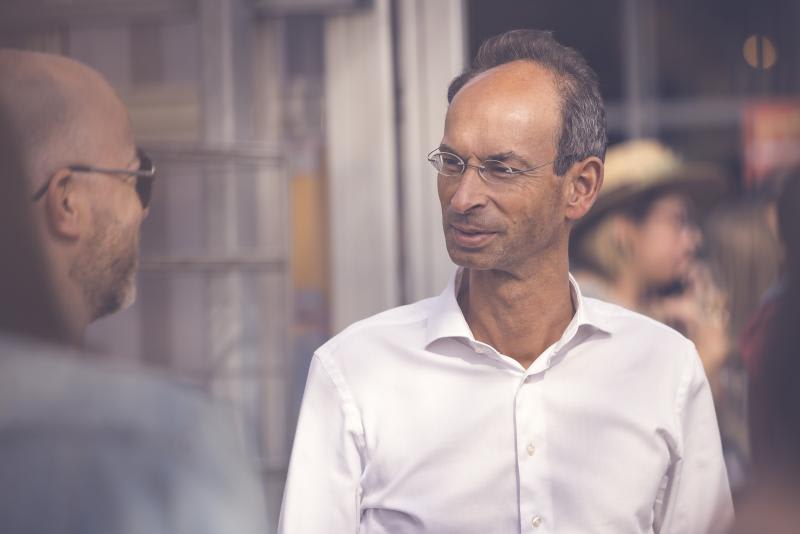- RSM Belgium joins global experts to explore defence spending’s potential to reinvigorate European economic growth.
- Businesses urged to adopt a sustainable approach to sustainability amid evolving regulations.
- Global political and business leaders gather at annual economic forum to inspire transformational change.
The economic impact of European defence spending in a post-American Europe and achieving equitable outcomes in the shift towards a more sustainable economy were explored by RSM leaders at this year’s Delphi Economic Forum.
The annual forum brought together 3,000 leaders from government, academia and business representing 55 countries in Delphi to explore geopolitics, developing a sustainable economy and finance and the planet.
Vincent Thyrion, senior leader from RSM Belgium shaped discussions, panel events and interviews to unpick crucial global, regional and national economic themes at the forum.
Among the forum’s panel discussions, RSM supported sessions which delved into the economic considerations Europe could face amid defence spending rising in a post-American Europe, the shift towards a more sustainable economy, along with how professional services are being shaped in Greece by the rise in IPOs and talent management opportunities and challenges.
European defence spending in a post-American Europe
Providing economic insights around potential changes to European defence spending, Tom Pugh, Chief Economist, RSM UK Group LLP, said:
“The boost in defence spending has the potential to reinvigorate economic growth across Europe – driving manufacturing production, innovation and infrastructure investment.However, most countries are not in a position to just borrow enough to pay for the required increase in spending so we could see reallocation of funding or higher taxes to fill the fiscal void. In order to generate the technological gains and wider benefits to other industries that can boost productivity, as well as capturing the growth impact of higher spending, governments will need to focus on increasing domestic supply chains.”
“Simply importing arms from abroad will not provide any economic benefits. However, the need for bolster pan-European supply chains has become acute after the US tariffs shock, so maybe a joined-up strategy represents the best way to revive, and protect, a withering manufacturing industry in the UK and on the continent.”
Tom Pugh joined the following panellists during the discussion:
• Dimitrios Kottas, Delian Alliance Industries
• William Drozdiak, Global Fellow, Wilson Center, Global Europe Program, USA
• Nico Lange, Senior Fellow, Munich Security Conference/Center for European Policy Analysis in Washington D.C., Germany
Ensuring Equitable Outcomes in the Shift to a Sustainable Economy
In another panel discussion supported by RSM, the forum explored the practical considerations in the shift to a more sustainable economy as global requirements and regulations evolve.
Alex Kotsopoulos, Partner, RSM Canada LLP, said:
"Businesses need a sustainable approach to sustainability as reporting requirements and regulations evolve.While some jurisdictions have pulled back, there are still ongoing efforts to integrate sustainability factors into strategy, risk management and operations."
“To address this uncertainty, businesses should implement a common-sense approach that addresses requirements on a cost-effective basis while prioritising initiatives that generate positive and tangible results."
Alex was joined in this panel discussion by the following panellists:
• Kostas Bakoyiannis, Chair of the Committee on the Environment, Climate Change and Energy (ENVE)
• Yanis Ben Amor, Executive Director, Center for Sustainable Development, Columbia University, USA
• Maria Damanaki, Ind. Advisor on Climate-Oceans, EU Commissioner for Maritime Affairs & Fisheries (2010-2014), Greece
• Mathieu Vallart, Director Sustainability, Eldorado Gold Corporation, Greece
RSM Belgium Joins Global Experts to Explore Defence Spending’s Potential to Reinvigorate European Economic Growth
Vincent Thryion, Audit Partner, RSM Belgium Delegate, said:
“Europe, and Belgium in particular, must embrace a pragmatic yet future-oriented approach to sustainability and economic resilience. As regulatory landscapes evolve, businesses should integrate sustainability not as a burden but as a strategic lever, balancing compliance with tangible impact, much like we see in other forward-thinking jurisdictions."
"At the same time, the shift in defence spending across Europe presents both a challenge and an opportunity. For Belgium, the key lies in fostering strong domestic and pan-European supply chains, not only to capture economic benefits but to secure long-term industrial competitiveness. A coordinated strategy, anchored in sustainability, innovation and fiscal realism, is essential to revitalise our manufacturing base and ensure Europe’s strategic autonomy.”





